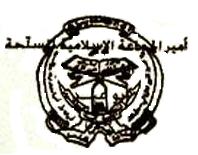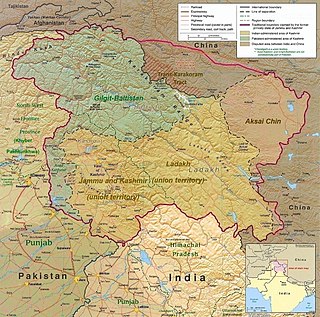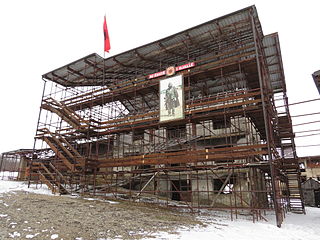
The Armed Islamic Group was one of the two main Islamist insurgent groups that fought the Algerian government and army in the Algerian Civil War.

The Beslan school siege was a terrorist attack that started on 1 September 2004, lasted three days, involved the imprisonment of more than 1,100 people as hostages and ended with the deaths of 333 people, 186 of them children, as well as 31 of the attackers. It is considered to be the deadliest school shooting in history.
The Rais massacre, of August 29, 1997, was one of Algeria's bloodiest massacres of the 1990s. It took place at the village of Rais, near Sidi Moussa and south of Algiers. The initial official death toll was 98 people killed and 120 wounded; CNN said that hospital workers and witnesses gave a toll of at least 200, and up to 400. The figure given by the Algerian government to the UN Commission on Human Rights was 238. The BBC later quoted the figure of 800 killed.
The Beni Messous massacre took place on the night of September 5, 1997, in Sidi Youssef, an outlying neighborhood of the town of Beni Messous. At least 84 people were killed.

The Ituri conflict is an ongoing conflict between the agriculturalist Lendu and pastoralist Hema ethnic groups in the Ituri region of the north-eastern Democratic Republic of the Congo (DRC). While the two groups had fought since as early as 1972, the name 'Ituri conflict' refers to the period of intense violence between 1999 and 2003. Armed conflict continues to the present day.

The insurgency in Jammu and Kashmir, also known as the Kashmir insurgency, is an ongoing separatist militant insurgency against the Indian administration in Jammu and Kashmir, a territory constituting the southwestern portion of the larger geographical region of Kashmir, which has been the subject of a territorial dispute between India and Pakistan since 1947.

The insurgency in the Maghreb refers to the ongoing Islamist insurgency in the Maghreb region of North Africa that followed on from the end of the Algerian Civil War in 2002. The Algerian militant group Salafist Group for Preaching and Combat (GSPC) allied itself with al-Qaeda to eventually become al-Qaeda in the Islamic Maghreb (AQIM). The Algerian and other Maghreb governments fighting the militants have worked with the United States and the United Kingdom since 2007, when Operation Enduring Freedom – Trans Sahara began.
The Ilagâ is a Christian extremist paramilitary group based in southern Philippines. The group is predominantly composed of Visayans, embracing a form of Folk Catholicism that utilizes amulets and violence.

The attack on Prekaz, also known as the Prekaz massacre, was an operation led by the Special Anti-Terrorism Unit of Serbia on 5 March 1998, to capture Kosovo Liberation Army (KLA) fighters deemed terrorists by Serbia. During the operation, KLA leader Adem Jashari and his brother Hamëz were killed, along with nearly 60 other family members.
Events from the year 2009 in Algeria
The Walisongo school massacre is the name given to a series of attacks by Christian militants on May 28, 2000 upon several predominantly Muslim villages around Poso town, Central Sulawesi, Indonesia as part of a broader sectarian conflict in the Poso region. Officially, the total number killed in the attacks is 165, but there is no definite figure of how many died. The number of dead is believed to be more than the 39 calculated from bodies later discovered in three mass graves, and equal to or below the 191 quoted by Muslim sources.

The Hazara community in Quetta, in Pakistan, has been the target of persecution and violence. Terrorist organisations like Lashkar-e-Jhangvi have often accepted responsibility for conducting attacks on Hazaras in Pakistan.
Timeline of the Boko Haram insurgency is the chronology of the Boko Haram insurgency, an ongoing armed conflict between Nigerian Islamist group Boko Haram and the Nigerian government. Boko Haram have carried out many attacks against the military, police and civilians since 2009, mostly in Nigeria. The low-intensity conflict is centred on Borno State. It peaked in the mid 2010s, when Boko Haram extended their insurgency into Cameroon, Chad and Niger.

The Allied Democratic Forces insurgency is an ongoing conflict waged by the Allied Democratic Forces in Uganda and the Democratic Republic of the Congo, against the governments of those two countries and the MONUSCO. The insurgency began in 1996, intensifying in 2013, resulting in hundreds of deaths. The ADF is known to currently control a number of hidden camps which are home to about 2,000 people; in these camps, the ADF operates as a proto-state with "an internal security service, a prison, health clinics, and an orphanage" as well as schools for boys and girls.
Abdul Hamid Bhatt was a commander in the Islamist militant organisation Hizbul Mujaheddin. He was killed in an encounter on 13 March 2000 by Indian security forces. Hamid Gada, at the time of his death, was the most wanted North Kashmiri militant. He had been called "Jammu and Kashmir's most important terrorist leader" by Indian journalist Praveen Swami, responsible for the massacres of numerous Kashmiri Hindus, including the 1998 Wandhama massacre. Press Trust of India said that in total, over a period of ten years of militancy, he was responsible for killing over a hundred civilians.

Islamist insurgency in the Sahel or Jihadist Insurgencies in the Sahel refers to the Islamist insurgency in the Sahel region of West Africa following the 2011 Arab Spring to the present day. In particular, the intensive conflict in the three countries of Mali, Niger and Burkina Faso has been referred to as the Sahel War.

Persecution of Muhajirs or Human rights abuses against Muhajirs or Anti-Muhajir sentiment ranges from discrimination, mass killings, forced disappearances and torture, to political repression and suppression of freedom of speech of Muhajirs, mainly those belonging to the right wing party Muttahida Qaumi Movement – Pakistan.The European Muhajir Network claimed that that over 1.3 million Muhajirs have died in Pakistan as a result targeted killings and genocides.
Events in the year 2022 in Mali.








